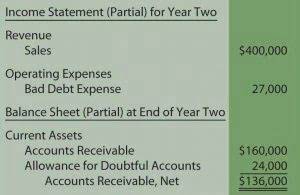
They serve different functions and target different audiences by handling data differently. This data-driven approach helps a business focus its resources on the most profitable areas and decide whether to invest or cut back. In this way, managerial accounting helps ensure that a business stays competitive and financially sound.
Purpose of reports Content of reports Verification process
Let’s say https://www.bookstime.com/articles/dental-billing a business witnesses increasing production costs; managerial accounting might reveal how a specific process is less efficient than expected. This can be followed by a review and optimization of that particular process to perform better. Managerial accounting delves into how various factors—such as changes in production processes, pricing strategies, or overall market conditions—affect a business’s cost, revenue, and profitability. The biggest benefit is that businesses can implement targeted improvements once they know the root cause of unexpected outcomes. Whether launching a new product or service, relying on accurate financial data can always help in making an informed choice. It gives you a clear idea of how much you can afford to spend in a particular area without getting into financial trouble.

Financial Accounting vs. Managerial Accounting: Time Orientation
Business managers can leverage this powerful tool in order to make their businesses more successful, because management accounting adds value to common business decision-making. All of this readily available information can lead to great improvements for any business. Managerial and financial accounting are used by every business, and there are important differences in their reporting functions. Maintaining trust and upholding professional standards require accountants to report with accuracy, honesty, and integrity. It is important to know the differences in managerial accounting vs. financial accounting to understand their jobs and how important they are.

Informed Goal Setting

Financial accounting information is communicated through reporting, such as the financial statements. The financial statements typically include a balance sheet, income statement, cash flow statement, retained earnings statement, and footnotes. One example of a managerial accounting report is a budget analysis (variance report) as shown in the table below. Other reports can include cost of goods manufactured, job order cost sheets, and production reports. Since managerial accounting is not governed by GAAP or other constraints, it is important for the creator of the reports to disclose all assumptions used to make the report.
- Managerial accounting is a flexible concept by nature as it is tailored to meet the specific requirements of different departments of an organization.
- Financial statements help these outside parties make informed decisions about investments, lending money, or evaluating the company’s compliance with regulations.
- The process of financial accounting follows established rules and principles, most notably the Generally Accepted Accounting Principles (GAAP) or International Financial Reporting Standards (IFRS).
- On the other hand, external auditors frequently check financial accounting reports for correctness and compliance.
- In the world of business, information is power; stated simply, the more you know, typically, the better your decisions can be.
- Managerial accounting provides these tools and insights to help a business continuously monitor and analyze its financial performance.
Question
Managerial accounting reports are highly detailed, technical, specific, and even exploratory in nature. Companies are always looking for a competitive advantage, so they may examine a multitude of details that could seem pedantic or confusing to outside parties. This is not the case with managerial accounting, https://cybexi.com/2021/06/14/bookkeeping-and-payroll-services/ as there can be reasons to highlight information that is particularly relevant or even downplay information that is not. For example, you might want to bury lower bonuses in an overall number for expenses to avoid angering midlevel to lower-level employees who peruse the report. Therefore, the primary key difference between the two are the ultimate purpose of the study.
Financial accounting looks backward, while managerial accounting helps guide day-to-day decisions and future planning. This is a fundamental difference between financial vs managerial accounting to consider. Managerial accounting is essential for making informed decisions within an organization. It covers a wide range of internal matters such as budgeting, resource allocation, performance evaluation, and strategic planning.
- With financial accounting, startups can keep track of records of incomes, expenses, and other financial transactions to understand where they stand at any given time and gain clarity on their finances.
- No, managerial accounting does not follow GAAP guidelines because it focuses on preparing internal reports and information for the internal management’s use and does not comply with external reporting standards.
- This gives a standardized view of the company’s financial health to maintain transparency and trust with external parties.
- For non-profit organizations, specialized non-profit accounting software can streamline financial processes and ensure compliance with regulatory requirements.
- This type of accounting covers a wide range of activities, such as costing products, budgeting forecasting, and conducting financial analysis to provide data regarding business operations.
- Startups heavily rely on external funding to support their growth, and building strong trust with investors is an integral part of that.
What is Managerial Accounting?
It is primarily historical in nature, recording what has already happened by summarizing financial transactions that previously occurred during a specific period. It gets easier for a business to run its financial operations when they have the necessary data to manage day-to-day operations. Managerial accounting provides these tools and insights to help a business continuously monitor and analyze its financial performance. In this way, managerial accounting forms the foundation for sound financial management so businesses can operate efficiently and stay competitive – all while achieving sustainable growth. Managerial accounting is a flexible concept by nature as it is complete the following comparison table between managerial and financial accounting. tailored to meet the specific requirements of different departments of an organization.
